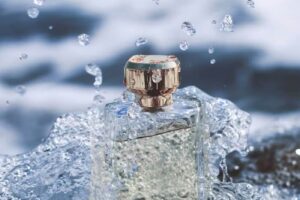When it comes to choosing the right type of stainless steel for industrial applications, SS 410 Round Bars are a reliable and cost-effective option. These round bars are known for their strength, wear resistance, and ability to handle moderate corrosion, making them a perfect fit for mechanical, structural, and engineering projects.
In this blog, we will explore everything you need to know about SS 410 round bars, including their specifications, features, chemical composition, physical properties, and common uses. Whether you are a manufacturer, fabricator, or part of a construction team, understanding these bars can help you choose the right material for your project.
What is SS 410?
SS 410 is a martensitic stainless steel grade that contains chromium as its primary alloying element. It is a hardenable steel, which means its strength and hardness can be increased through heat treatment. SS 410 offers a good combination of mechanical strength and moderate corrosion resistance, especially in environments that are dry or mildly corrosive.
Because of its unique properties, SS 410 is used in components that require high strength and wear resistance, such as shafts, fasteners, pump parts, and valves.
Key Specifications of SS 410 Round Bars
When selecting SS 410 Round Bars, it’s important to consider their specifications, as they determine performance and suitability for various applications.
Here are the general specifications:
-
Grade: SS 410 (UNS S41000)
-
Standard: ASTM A276 / ASTM A479
-
Size Range: 5mm to 500mm in diameter
-
Length: Usually 1 to 6 meters (custom lengths also available)
-
Form: Round, bright, black, peeled, or polished bar
-
Tolerance: h9, h11, or as per drawing/spec
-
Hardness: Can be increased through heat treatment
-
Surface Finish: Bright drawn, hot rolled, or turned
These specifications may vary slightly depending on the manufacturer or supplier, but they form the basic reference for most 410 stainless steel suppliers.
Chemical Composition of SS 410
SS 410 contains the following main elements:
| Element | Content (%) |
|---|---|
| Chromium (Cr) | 11.5 – 13.5 |
| Carbon (C) | ≤ 0.15 |
| Manganese (Mn) | ≤ 1.00 |
| Silicon (Si) | ≤ 1.00 |
| Phosphorus (P) | ≤ 0.04 |
| Sulfur (S) | ≤ 0.03 |
| Iron (Fe) | Balance |
The presence of chromium improves corrosion resistance, while the controlled amount of carbon enables hardening and strength development.
Mechanical Properties of SS 410 Round Bars
The mechanical strength of SS 410 Round Bars is one of the main reasons they are used in demanding applications. Below are the typical mechanical properties:
| Property | Value |
|---|---|
| Tensile Strength | 500 – 700 MPa (varies with heat treatment) |
| Yield Strength | ≥ 275 MPa |
| Elongation (in 2″) | ≥ 20% |
| Hardness (Brinell) | 170 – 241 HB (can reach 300+ after hardening) |
| Modulus of Elasticity | ~200 GPa |
SS 410 can be hardened up to 40-45 HRC when heat treated, which makes it perfect for wear-resistant components.
Physical Properties of SS 410
Some important physical properties include:
-
Density: ~7.75 g/cm³
-
Melting Point: ~1480°C
-
Thermal Conductivity: 24.9 W/m·K
-
Electrical Resistivity: 0.55 µΩ·m
-
Thermal Expansion Coefficient: 9.9 µm/m·°C (at 20–100°C)
These properties make it suitable for use in conditions that involve high temperatures and mechanical loads.
Key Features of SS 410 Round Bars
-
High Strength: SS 410 offers excellent mechanical strength, which increases even more with proper heat treatment.
-
Wear Resistance: Its hardness allows it to resist surface damage from friction or mechanical impact.
-
Moderate Corrosion Resistance: While not as corrosion-resistant as austenitic grades like 304 or 316, SS 410 performs well in dry or mildly corrosive environments.
-
Machinability: It has decent machinability, especially in the annealed condition.
-
Magnetic: SS 410 is magnetic in both annealed and hardened conditions.
-
Heat Treatable: One of the biggest advantages of SS 410 is its ability to be heat treated for higher strength and hardness.
Common Applications of SS 410 Round Bars
Thanks to their strength and versatility, SS 410 Round Bars are used in a wide variety of industries. Some typical applications include:
-
Shafts and pump rods
-
Fasteners like bolts, screws, and studs
-
Valves and fittings
-
Gears and automotive components
-
Petroleum refining equipment
-
Food processing machinery (when minimal corrosion exposure is expected)
-
Hand tools and blades
-
Construction and structural support bars
Their ability to withstand wear and handle moderate exposure to moisture or chemicals makes them highly dependable.
Heat Treatment of SS 410 Round Bars
Heat treatment is essential to unlock the full potential of SS 410 round bars. The typical heat treatments include:
-
Annealing: Heating at 815–900°C and slowly cooling to improve softness and machinability.
-
Hardening: Heating at 925–1010°C followed by oil or air quenching. This increases hardness.
-
Tempering: Heating between 150–370°C after hardening to adjust the final hardness and reduce brittleness.
Heat-treated bars are best used in high-stress applications like pump shafts, mechanical tools, and rotating parts.
Benefits of Choosing SS 410 Round Bars
Here are the main reasons why industries prefer SS 410:
-
Long service life under mechanical load
-
Cost-effective compared to higher grades
-
Easily available from 410 stainless steel suppliers
-
Can be customized for different applications
-
Good balance of strength and corrosion resistance
SS 410 is a smart choice for those who need performance at a reasonable cost, especially in environments that don’t involve strong acids or seawater.
How to Choose the Right SS 410 Round Bar
When selecting SS 410 Round Bars, consider the following:
-
Size and tolerance based on your design
-
Surface finish if appearance or cleanliness matters
-
Hardness needed for your application
-
Certifications such as ASTM A276, A479, etc.
-
Choose reliable 410 stainless steel suppliers who offer quality and timely delivery
Final Thoughts
SS 410 Round Bars are a strong, durable, and versatile stainless steel product that fits well in many industrial applications. With their ability to be heat treated for added strength and wear resistance, they’re ideal for use in mechanical and structural components. While they may not offer the same corrosion resistance as some other grades, they provide excellent performance in less aggressive environments at a lower cost.

